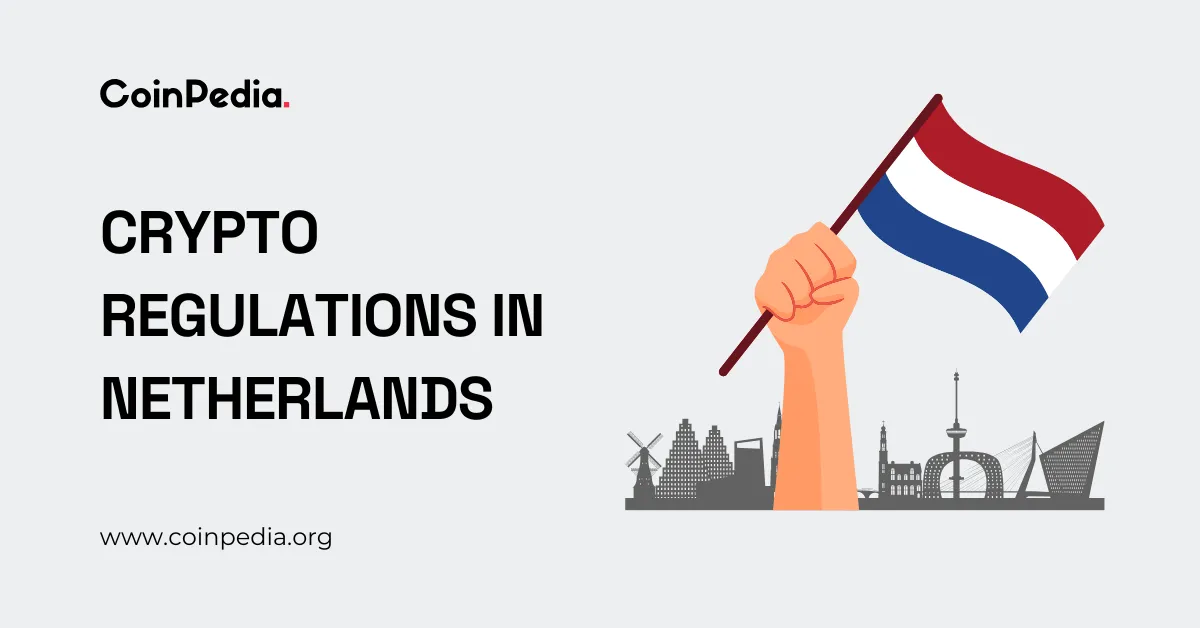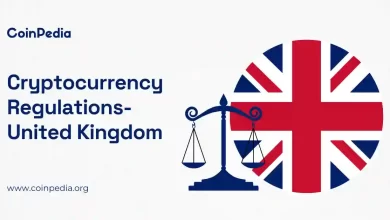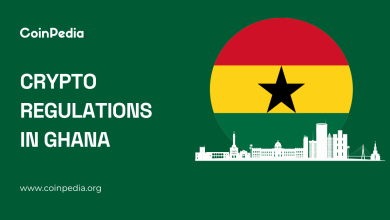
The Netherlands is often regarded as a crypto-friendly country due to its robust regulatory framework for cryptocurrencies. While owning and trading cryptocurrency is legal in the Netherlands, it does not have any specific concrete regulations governing digital assets. Since the Netherlands is a part of the European Union (EU), it has incorporated with EU’s crypto regulations, including the EU’s fifth anti-money laundering directive (AMLD5).
Table of contents
Crypto Regulations in the Netherlands
June 30, 2025 – Ending of Transitional Period
Crypto asset service providers (CASPs) operating in the Netherlands will need an MiCA license from the Dutch Authority for the Financial Markets (AFM) to legally offer crypto-related services.
- Netherlands establishes a 12-month transitional period for crypto asset service providers (CASPs); this approach states that existing CASPs can operate under current regulations while seeking an MICA license.
- After concluding its serving period, only authorized entities may continue to provide crypto asset services.
December 2024 to June 2025
- The AFM started accepting MiCA licenses for crypto asset service providers (CASPs) in April 2024. Under this policy, all Dutch crypto asset providers outside the Netherlands will require a MiCA license to operate.
- After approval, the licenses become effective from December 30, 2024. Article 60 states, ‘certain financial entities’ will not require a CASP license from their domestic regulator; they will rather be required to follow a simplified notification procedure to extend operations of digital assets.
- This impacts the ‘travel rule’ of the crypto asset transfer and will be subject to the Sanctions Act 1977. The act will end before serving the 18 months permitted under MICA, and will conclude on June 30, 2025.
January 2025
- The Dutch Authority of Financial Markets (AFM) issued the first MiCA licenses to four platforms: MoonPay, Bitstaete, ZBD, and Hidden Road.
- This approach aims to establish a clear and secure regulatory environment for cryptocurrencies. In addition, it protects the investors and ensures integrity in the financial system.
| Date | Law/ Regulation | Details |
| December 30, 2024 | MICA Provision | CASPs require obtaining authorization from DNB |
| November 2024 | Tether investment in Quantoz | Aims to launch MICA-compliant stablecoin |
| July 17, 2024 | Basel cryptoasset standard | This will be implemented from January 1, 2026 |
| June 30, 2024 | ART & ERT | Trading of asset-referenced tokens (ART) and e-money tokens (EMT) becomes applicable |
| June 29, 2023 | Provision for regulating ART & ERT | Came into effect under the MICA regime |
| 2023 | Crypto tax | Updates in ‘fictitious return’ |
| 2022 | Crypto tax | Updated wealth tax on the proportion of total wealth |
| 2020 | AML/ CFT | Adopted under the Dutch interpretation of the EU’s fifth anti-money laundering directive (AMLD5) |
| 2020 | Wwft | The Money Laundering and terrorist financing prevention act was launched under AML/ CFT. |
What is the Dutch Government Telling About Crypto?
The Dutch National Bank- De Nederlandsche Bank (DNB):
- It is the primary regulator of cryptocurrency, currently focusing on crypto fiat exchanges and custodian wallet providers.
- It enacted the Market in Crypto Assets Regulation (MiCAR) to promote transparency in the crypto ecosystem in the Netherlands.
- Classified backed and unbacked cryptocurrencies; Bitcoin and Doge are unbacked, stablecoins are backed.
The Dutch Authority for the Financial Markets (AFM):
- Promotes fair and transparent financial markets to develop sustainable financial well-being for crypto.
- Regulates crypto and enforces penalties for non-compliance with AFM standards.
Crypto License in the Netherlands 2025
- Crypto Licensing: Under the Dutch Authority for the Financial Markets (AFM), a crypto license is mandatory for businesses and individuals providing crypto-related services.
- Key Requirements: Compliance with anti-money laundering (AML), counter terrorism in finance (CFT), IT security, and disclosure of business plan is required to obtain a crypto license.
EU Passporting: Once licensed in the Netherlands, the entities can expand their services to all European Union (EU) countries through a notification process to their respective regulators.
Crypto Tax in the Netherlands
- Capital gains tax: CGT is not applicable on crypto assets; digital assets are only subject to wealth tax, which is calculated on January 1 each year.
- Crypto Box-3 system: The Netherlands has introduced a box system, categorizing different taxes in each box. Box 1 is income from employment, day trading crypto assets, or mining/ staking, as employment is subject to this tax, while Box 2 is of substantial interest.
- Tax rate: Crypto assets are reported under the Box 3 tax system in the Netherlands. The tax levied on presumed gains in this category is called Vermogensrendementsheffing, which is 36% on the tidal value of crypto assets.
Tax summary table for 2025
| Tax type | Details |
| CGT | NA |
| Wealth tax | 36% of total assets |
| Income tax | Tax exemption limit: €57,684 |
| Gift crypto | Tax exemption limit: €2,690 |
Crypto adoption rate
Penetration: Over 5 million people are using cryptocurrency in 2025, which represents the penetration rate of 31.05%. By 2026, the numbers are expected to increase by 5.85 million users, projecting a 31.72% penetration rate.
Revenue: The current revenue in the crypto market is US$966.7 million, which is anticipated to rise by 3.07% by next year. By 2026, the crypto market in the Netherlands will reach US$996.3 million in revenue.
Crypto Holdings: No official disclosure yet; the Dutch government is currently focusing on enhancing the regulatory framework.
Conclusion
The Netherlands’ government does not hold any crypto assets in its federal reserves; the YouTube influencer Bitcoin Bram has proposed to the Dutch government for the establishment of a national bitcoin reserve. Despite not having any possession of crypto assets in its reserve, the Dutch government has approved several crypto service providers and crypto assets in the Netherlands, which has helped millions of Dutch people utilize cryptocurrency legally.
Never Miss a Beat in the Crypto World!
Stay ahead with breaking news, expert analysis, and real-time updates on the latest trends in Bitcoin, altcoins, DeFi, NFTs, and more.
FAQs
Yes, owning and trading cryptocurrency is legal in the Netherlands. It operates under a robust regulatory framework, incorporating EU standards like AMLD5 and upcoming MiCA rules.
Yes, the Netherlands is considered crypto-friendly due to its clear regulatory framework for digital assets, including a structured approach to MiCA implementation and a growing adoption rate.
The Netherlands does not have a capital gains tax on crypto. Instead, crypto assets are subject to a 36% wealth tax (Vermogensrendementsheffing) on presumed gains, calculated annually on January 1.
The Dutch National Bank (DNB) is the primary regulator for crypto-fiat exchanges and custodian wallet providers, while the Dutch Authority for the Financial Markets (AFM) issues MiCA licenses and promotes transparent markets.
Trust with CoinPedia:
CoinPedia has been delivering accurate and timely cryptocurrency and blockchain updates since 2017. All content is created by our expert panel of analysts and journalists, following strict Editorial Guidelines based on E-E-A-T (Experience, Expertise, Authoritativeness, Trustworthiness). Every article is fact-checked against reputable sources to ensure accuracy, transparency, and reliability. Our review policy guarantees unbiased evaluations when recommending exchanges, platforms, or tools. We strive to provide timely updates about everything crypto & blockchain, right from startups to industry majors.
Investment Disclaimer:
All opinions and insights shared represent the author's own views on current market conditions. Please do your own research before making investment decisions. Neither the writer nor the publication assumes responsibility for your financial choices.
Sponsored and Advertisements:
Sponsored content and affiliate links may appear on our site. Advertisements are marked clearly, and our editorial content remains entirely independent from our ad partners.








